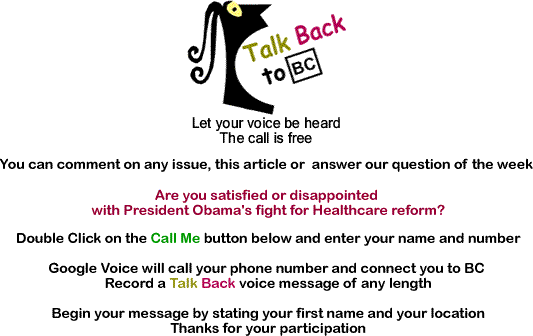
|
||||||||||||||||||||||

|
|
 |
|
Congressman Barney Frank has been for decades the iconic image of gay civil rights advocacy on Capitol Hill. For many years he was the lone voice and only openly gay congressman.
But
as one of the most vocal critics of the National Equality March
that took place in And for those under 40 many are also asking is Barney Frank now the iconic image of the generational schism of our new gay rights movement? Mocking protesters efforts to put pressure on their elected officials on Capitol Hill for full and equal protection, Frank told the Associated Press that our demonstration was “a waste of time at best” and that activists needed to concentrate on lobbying lawmakers. “The only thing they’re going to be putting pressure on is the grass,” Frank said. For
many in the LGBTQ community - young and old - Frank has become too
much of a D.C. bureaucrat and not a relevant representative of even
the “I
used to live in Of late, Frank’s record on LGBTQ issues has accommodated the status quo.
But when he does speak up it’s against our efforts. Frank told the Associated Press, “I literally don’t understand how this will do anything. People are kidding themselves. I don’t want people patting themselves on the back for doing something that is useless. Barack Obama does not need pressure.” But the President has been an Obama-nation on LGBTQ issues since he’s taken office. The political carrots Obama dangled before us as campaign promises are now looking like merely empty rhetoric that was used to court our votes and to collect our campaign dollars. On June 4 Jonathan Capehart, an African American gay journalist at the Washington Post wrote the op-ed “Okay, Obama. Now Let’s Have a Speech on Gay Rights,” stating “After last night’s airing of NBC’s Inside the Obama White House interview, in which Obama provided a tepid answer to a question about whether “gay and lesbian couples who wish to marry in this country have a friend in the White House,” the blogosphere is filling with cries of “shameful” and “no passion, no heart, no real connection to our cause.” On June 12, the LGBTQ community got another blow: Obama defend (DOMA), a law that prevents couples in the states that recognize same-sex marriage from securing Social Security spousal benefits, filing joint taxes and other federal rights of marriage. His reasons: DOMA is not a valid exercise of Congress’s power, and it is not consistent with Equal Protection or Due Process principles, and it would infringe on the rights of taxpayers in states that fundamentally oppose same-sex marriage. The purpose of the march was to motivate LGBTQ citizen and our allies to be active locally. The strategy sessions, grassroots-organizing workshops that took place over the weekend were to help prepare activist to do the work at home to achieve full equality for LGBTQ citizens. One of the organizers of the March, Kip Williams said, “We hear Congressman Frank when he says this is about getting back into your district and doing the work there. [This march] is about building community and building a network who will go back and do that work.” I
wonder if it is “old school” organizing versus “new school” organizing
that Frank missed in understanding the energy for the March. The March was a success. Time Magazine reported that 200,000 attended. But frankly speaking, how would Barney know? He didn’t attend. BlackCommentator.com
Editorial Board member, the Rev. Irene Monroe, is a religion columnist,
theologian, and public speaker. A native of Brooklyn, Rev. Monroe
is a graduate from Wellesley College and Union Theological Seminary
at Columbia University, and served as a pastor at an African-American
church before coming to Harvard Divinity School for her doctorate
as a Ford Fellow. Reverend Monroe is the author of Let Your Light Shine Like a Rainbow Always: Meditations on Bible
Prayers for Not-So-Everyday Moments |
|
 |
|
Any BlackCommentator.com article may be re-printed so long as it is re-printed in its entirety and full credit given to the author and www.BlackCommentator.com. If the re-print is on the Internet we additionally request a link back to the original piece on our Website. Your comments are always welcome. eMail re-print notice
If you send us an eMail message we may publish all or part of it, unless you tell us it is not for publication. You may also request that we withhold your name. Thank you very much for your readership. |
|
| |
|
| October
15 , 2009 Issue 346 |
|
| Executive Editor: Bill Fletcher, Jr. |
| Managing Editor: Nancy Littlefield |
| Publisher: Peter Gamble |
| Est. April 5, 2002 |
Printer Friendly Version
in resizeable plain
text format or pdf
format. |
 |

|
| |
| |





























 For
example, in April Barney Frank agreed with his Democratic cronies
in not pushing to repeal “Don’t Ask, Don’t Tell” until 2010. However,
in June the Supreme Court agreed with the Obama administration in
refusing to review the Pentagon policy that prohibits LGBTQ service
members to serve openly in the military. And Frank never spoke up.
For
example, in April Barney Frank agreed with his Democratic cronies
in not pushing to repeal “Don’t Ask, Don’t Tell” until 2010. However,
in June the Supreme Court agreed with the Obama administration in
refusing to review the Pentagon policy that prohibits LGBTQ service
members to serve openly in the military. And Frank never spoke up.











